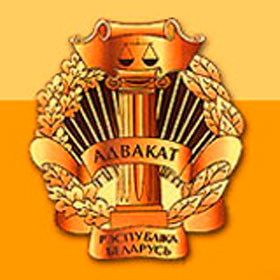Legislation on lawyers: What changes needed?
It has been over two years since the entry in force of the Law “On the Legal Profession and Activities of Lawyers in the Republic of Belarus” and other regulations adopted pursuant to it. Despite the fact that this law is sufficiently “fresh”, the need for changes in the Belarusian legislation on lawyers has been prompted by both national and foreign experts. In the application of this Act, this need has been also perceived by the lawyers’ community and the state.
The process of improvement is logical for any legislation. This is due to the fact that the law enforcement practice, as a rule, has gaps and conflicts in the legal regulation of a particular area. In addition, sometimes changing realities dictate the need for a reform at the legislative level. With regard to legislation on the legal profession, its approval and revision should take into account international standards of the legal profession and the right to protection, as the activities of lawyers is the tool that is intended to protect the rights and freedoms guaranteed not only by national, but also by international laws.
From this perspective, the Law needs adjustment in its basic concepts contained in Article 1, “attorney-client privilege” and “legal aid”. These concepts are crucial, because they are the basis for relationships between the counsel and the client.
According to the Law, lawyer’s secrecy is information on issues relating to the client, consultations, explanations and reports received by the client from the lawyer, information about the personal life of the client, information from the client about the circumstances of the commission of a criminal offense case in which a lawyer protects the rights, freedoms and interests of the client, as well as information that constitutes a commercial secret of the client.
With this definition, the attorney-client privilege does not cover a lot of information that has become known to the lawyer when providing legal aid, which jeopardizes the confidentiality of information entrusted to the lawyer by the client, and therefore the effectiveness of the legal aid and credibility of the client.
Therefore, the changes to the Law should expand the fixed subject of attorney-client privilege, by including any information that became known to the lawyer (lawyer’s aide, trainee lawyer, a person who is in an employment relationship with a lawyer) about the client that is associated with the provision of legal assistance, including: the fact of access to a lawyer, including the names of trustees; all the evidence and documents collected by a lawyer in preparation for the case; information obtained from a lawyer’s trustees; information about the trustee, which became known to the lawyer in the course of providing legal aid; content of legal advice given directly to the trustee or persons appointed by him; all legal proceedings in the case; terms of the agreement on legal assistance, including cash transactions between the lawyer and the client; any other information relating to the provision of legal aid by the lawyer.
The law defines legal aid as an activity to assist clients in understanding the proper use and compliance with the law, which is aimed at the implementation and protection of rights, freedoms and interests of clients, as well as representing clients in courts, state agencies and other organizations and individuals.
This wording allows ambiguous treatment, which may lead to unjustified restriction on the scope of the provision of legal aid. The definition of this term is necessary to be fixed in another version, enshrining in the law the widest range of types of legal assistance, by deleting the words “to assist clients in understanding the proper use and compliance with the law”, as well as adding to Part 5 of Article 1 a provision saying that “lawyers have the right at any time to provide any legal advice to the client, which is not prohibited by law”.


















